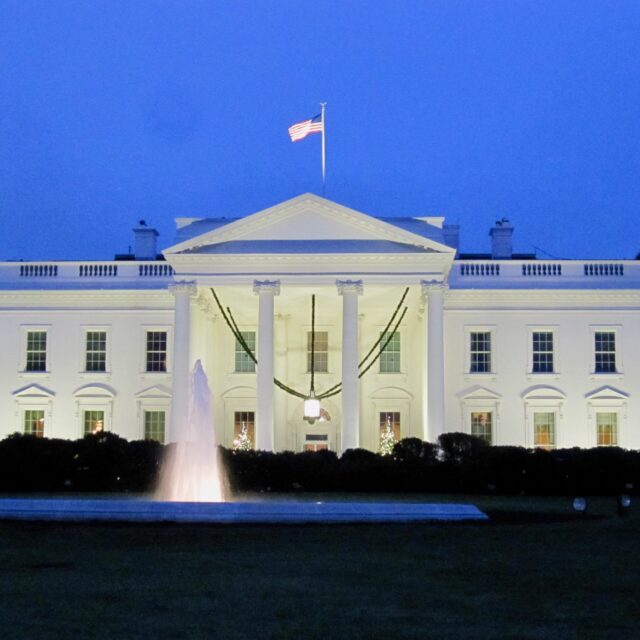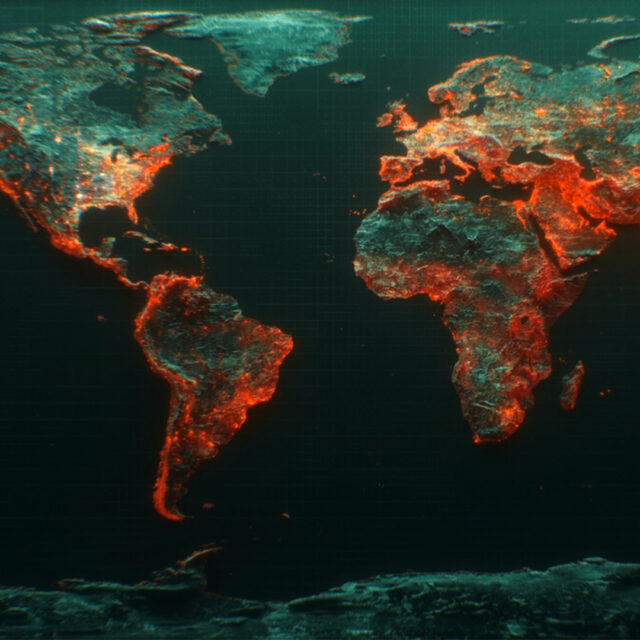Marc Friend is the Assistant Director, US Government Relations at the ONE Campaign. Here’s his analysis and thoughts on recent congressional plans to strengthen global health security.
COVID-19 has proven that we won’t be safe until the world works together to tackle this pandemic. Unfortunately, we also know that this won’t be the last deadly disease that the world will face. The US should be front and center leading the effort to prevent and respond to the next global health crises.
To start, ONE is deeply concerned about the leaked administration proposal that would attempt to replace the World Health Organization (WHO) with a division in the State Department. This is a go-alone strategy at a time when the world needs to work together. We have already seen the administration withdraw from the WHO amidst an unprecedented global pandemic, putting the safety of all Americans and the world at risk. It is also troubling that, instead of an approach that focuses on each agency’s strength, the administration’s proposal would, as Politico reported, decrease USAID’s role by consolidating pandemic preparedness under the State Department, which lacks the volume of supply chain experts, epidemiologists and public health experts on staff at USAID, reversing a half-century of hard-earned USAID leadership in global health. It is because of USAID’s program expertise and rigorous monitoring and evaluation that the lives of over 5 million children have been saved through health interventions in the past decade.
The good news is that members of Congress from both chambers and parties are working together to determine how we can tackle COVID-19 globally and better prepare for future pandemics. In the House of Representatives, ONE has endorsed Reps. Gerry Connolly (D-VA) and Steve Chabot (R-OH)’s bipartisan Global Health Security Act. The Global Health Security Act would direct the president to create a Global Health Security Agenda Interagency Review Council and encourage the appointment of a senior staff member at the National Security Council as the US coordinator for global health security.
In the Senate, Sens. Jim Risch (R-ID), Chris Murphy (D-CT), and Ben Cardin (D-MD) introduced the Global Health Security and Diplomacy Act (GHSDA) and Sen. Bob Menendez (D-NJ) introduced the COVID-19 International Response and Recovery Act of 2020 (CIRRA). Both are strong pieces of legislation. ONE endorsed the GHSDA because it has bipartisan support. We urge all who have concerns with the bill to take up the call from Chairman Risch to reach out to him and his office to discuss GHSDA. As advocates, our job – and opportunity – is to shape legislation for the better. Since CIRRA is not yet bipartisan, ONE has not endorsed it, but we are supportive of many of the provisions in the bill. We are hoping for a bicameral and bipartisan bill that brings the best ideas from the two Senate bills and the Global Health Security Act together. We think the wisest course of action is one that results in a single bill.
I specifically want to highlight a few areas of GHSDA that ONE was happy to see included. First, similar to CIRRA, it requires a comprehensive strategy on global health security. Both bills also encourage any presidential administration to have a senior position at the National Security Council focused on global health security. ONE supports GHSDA’s calls for State and USAID to be at all relevant interagency meetings, unlike what is currently happening with the COVID-19 taskforce. GHSDA also establishes USAID as the program lead on emergency humanitarian response and efforts to address secondary impacts and authorizes USAID disaster surge capacity, which is critical for combatting both global health emergencies and natural or man-made disasters. Lastly, GHSDA would authorize additional funding for global health security.
ONE was happy to see both bills support CEPI, the Coalition for Epidemic Preparedness Innovations, an alliance that helps finance and coordinate the development of new vaccines. A CEPI stand-alone bill, led by Reps. Ami Bera (D-CA) and Ted Yoho (R-FL), has passed the House.
On USAID specifically, ONE was pleased to see that GHSDA requires a USAID deputy director to work with the Global Health Security Coordinator established in GHSDA and pleased that CIRRA also raised USAID’s profile. ONE urges that the final proposal should not weaken any current USAID authorities or transfer its areas of responsibility, but should strengthen USAID’s role to ensure that it retains its role as the government’s lead development agency and that responsibility for these key activities rests with the agency with the experience and operational culture needed to succeed. USAID is a premier development agency and has led on addressing global health for over 60 years.
Further, ONE supports a global health security challenge fund that focuses on working with countries to strengthen their health systems, consistent with the Global Health Security Agenda and the WHO’s Joint External Evaluation (JEE) process. For this to be successful, it must be in close coordination with the WHO so that a challenge fund complements and does not replace the critical work of the WHO.
This is the time for the United States to stand back up and lead the world in both fighting COVID-19 and preparing for the next crises.



